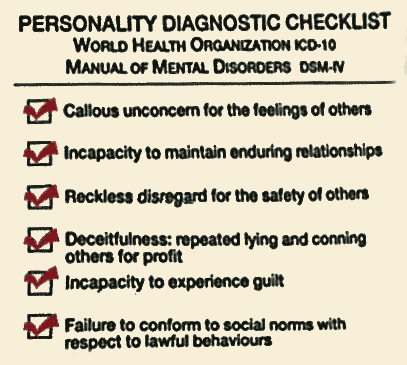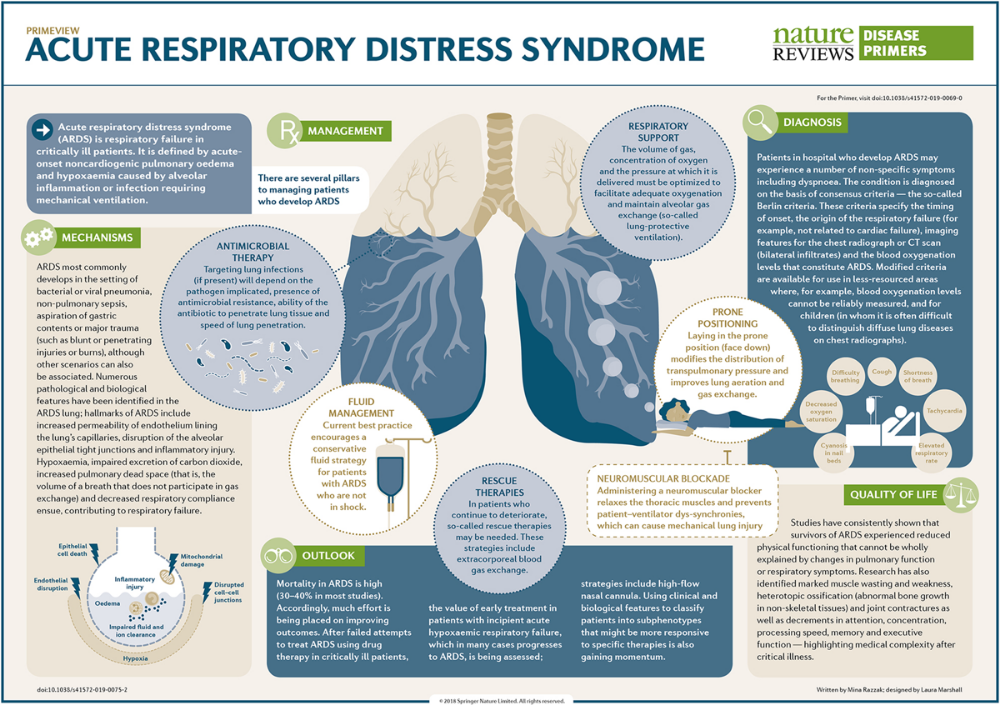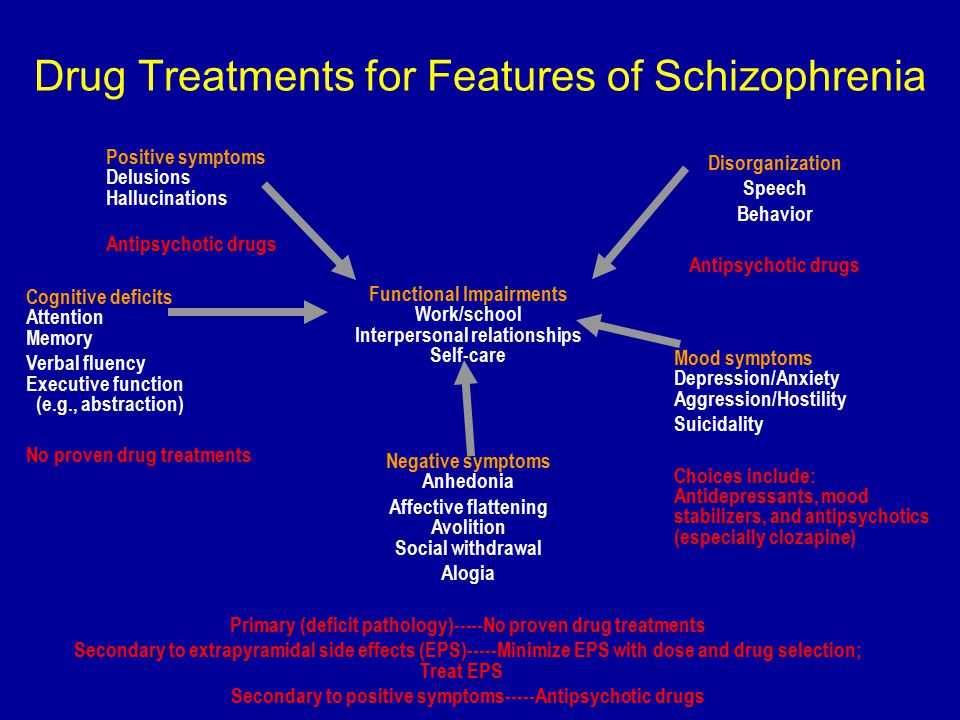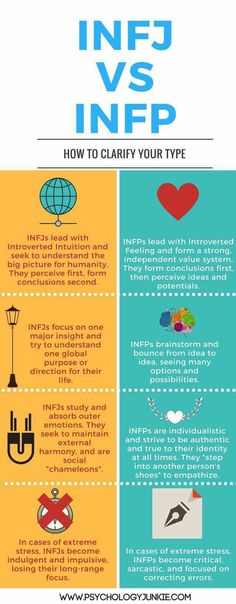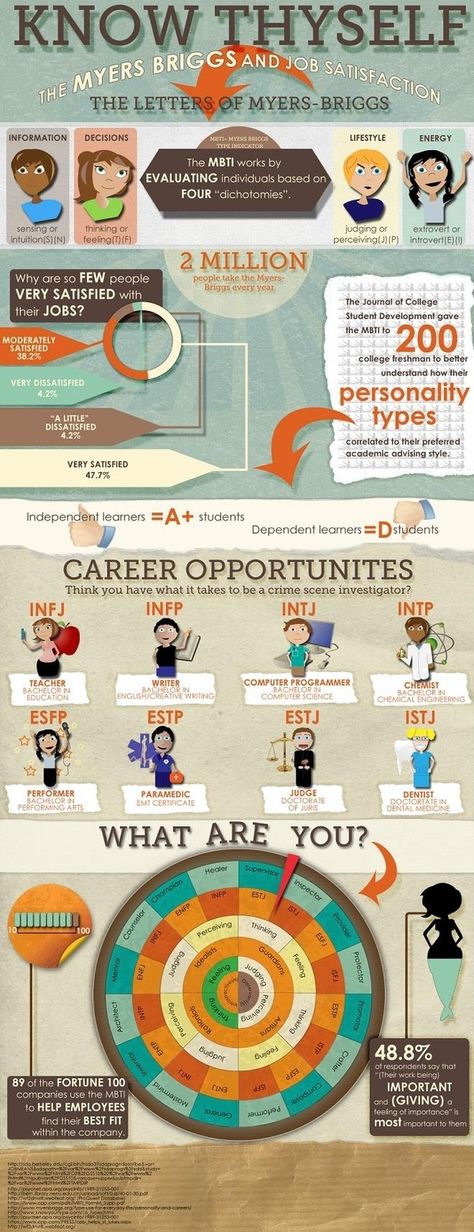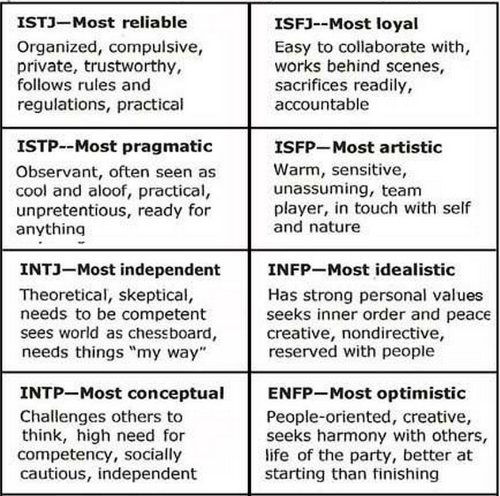Psychopathy checklist test
Psychopathy Test
- Tests
- Types
- Articles
- News
- Members
- Search
This test is also available in the following languages:
One of the most widely-used instruments in the psychiatric assessment of psychopaths is the Hare Psychopathy Checklist-Revised (PCL-R). It is commonly used to rate a person's psychopathic or antisocial tendencies. People who are psychopathic prey ruthlessly on others using charm, deceit, or violence to get what they want. This test is based on the PCL-R, but also includes factor analysis.
Are you, or somehow you know, a psychopath? For each of the following items, indicate how well it applies to the person you are trying to rate below.
Question 1 of 21
Who do you want to assess for psychopathy?
I want to assess myself. I want to assess someone I know.
NEXT BACK
The IDR-PCT© is the property of IDR Labs International. The original research was provided by FBI advisor and criminal psychologist Robert D. Hare. The IDR-PCT utilizes Hare’s research, but is not associated with Hare, and is not the equivalent of the Hare Psychopathy Checklist-Revised (PCL-R). The present test is in no way endorsed by, nor affiliated with, Hare, his associates, or similar entities. No infringement is intended by the present test.
The present test is in no way endorsed by, nor affiliated with, Hare, his associates, or similar entities. No infringement is intended by the present test.
The Psychopathy Checklist is a widely-used index and instrument for measuring psychopathic tendencies and behavior. The Psychopathy Checklist does not address all possible psychopathic identities and does not purport to accommodate respondents who seek to trick the measure or fall outside the normal spectrum of human psychology. Contrary to popular belief, the Psychopathy Checklist is not the only way of measuring psychopathy. Indeed, the output of the Psychopathy Checklist overlaps considerably with the narcissistic, borderline, and anti-social personality styles, as found in the alternative theoretical frame utilized in psychiatric manuals, such as the DSM. To test for these styles in the DSM framework, please consult our Personality Style Test.
Although all are designed to measure psychopathic tendencies and behavior, the IDR-PCT© should not be confused with other “Psychopathy Checklist Tests,” as authored by alternative research organizations. However, all are professionally-designed personality tests (or inventories) meant for measuring psychopathic tendencies and behavior in relation to psychiatric dispositions in the Western world. The IDR-PCT© is the property of IDR Labs International. The original research was provided by criminal psychologist Robert D. Hare. The authors of this online personality test are certified in the use of numerous personality tests and have worked professionally with typology and personality testing. The results of our online Psychopathy Checklist personality test are provided "as-is", and should not be construed as providing professional or certified advice of any kind. For more on our online personality test, please consult our Terms of Service.
However, all are professionally-designed personality tests (or inventories) meant for measuring psychopathic tendencies and behavior in relation to psychiatric dispositions in the Western world. The IDR-PCT© is the property of IDR Labs International. The original research was provided by criminal psychologist Robert D. Hare. The authors of this online personality test are certified in the use of numerous personality tests and have worked professionally with typology and personality testing. The results of our online Psychopathy Checklist personality test are provided "as-is", and should not be construed as providing professional or certified advice of any kind. For more on our online personality test, please consult our Terms of Service.
Psychopathy Test | Screening Tests for Psychopathy
SCREENING IS: Valid and reliable. How we estimate the risk for violent or anti-social behavior. And prepare to treat it.
This information should not be used to diagnose or treat. It is not meant to take the place of consultation with a healthcare professional. If you have concerns, you should contact your healthcare provider for a screening.
It is not meant to take the place of consultation with a healthcare professional. If you have concerns, you should contact your healthcare provider for a screening.
TAKE CHARGE (NOT CHANCES).
The screening tests below have proved reliable in estimating the risk of psychopathy. And can prove to be your first step towards living a better life.
On this page, we provide screening tests you can use to assess yourself or someone you know well for psychopathy. Each takes only a few minutes to complete.
After you complete the assessment, you will be provided with a score, and an estimate of how a person with that score compares to others of the same age and gender. You will also be provided information to help you interpret the score and what it means.
The screening tests are called the Triarchic Psychopathy Measure (TriPM), which is used to assess adults, and the Inventory of Callous Unemotional Traits (ICU), which is used to assess children and adolescents.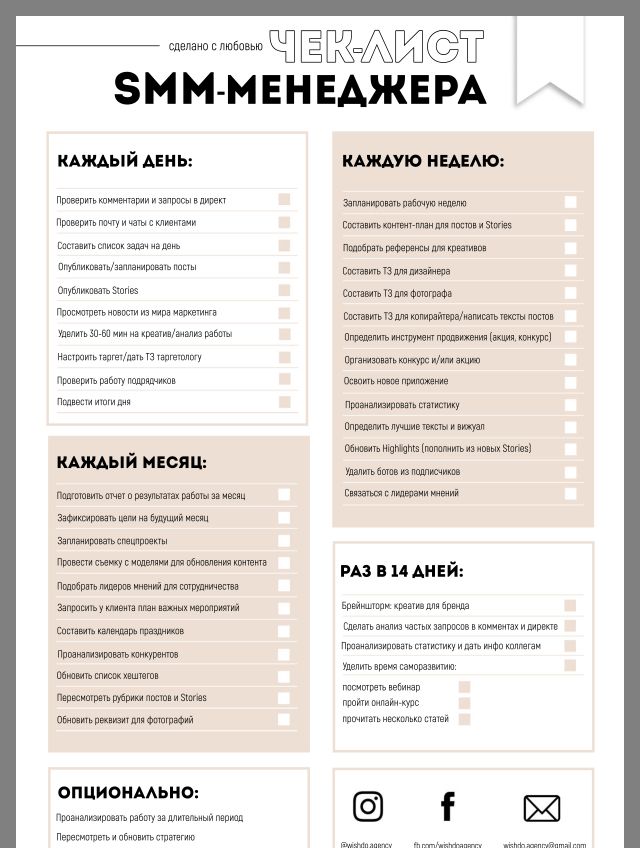
Take a Screening Test
Screening Test for Preschool Children
Ages 2-5
Callous-unemotional traits are the core emotional and social risk factors for psychopathy. The Preschool Version of the ICU (Inventory of Callous Unemotional Traits), developed by Paul Frick and colleagues, can reliably assess these traits in children between the ages of 2 and 5 (psychopathic traits can emerge as early as 2 or 3 years of age).
Translations
Español
Screening Test for Youth and Adolescents
Ages 6-17
Callous-unemotional traits are the core emotional and social risk factors for psychopathy. The ICU (Inventory of Callous Unemotional Traits), developed by Paul Frick and colleagues, can reliably assess these traits in children and adolescents between the ages of 6 and 17.
Translations
Español
Screening Test for Adults
Ages 18+
Psychopathy reflects a combination of traits that include boldness, callousness, and impulsivity. The TriPM (Triarchic Psychopathy Model), developed by Chris Patrick and colleagues, can reliably assess these traits in adults ages 18 and older.
The TriPM (Triarchic Psychopathy Model), developed by Chris Patrick and colleagues, can reliably assess these traits in adults ages 18 and older.
Translations
Questions?
Are the TriPM and ICU “Psychopath Tests”?
The TriPM is a valid and reliable assessment of psychopathy. The ICU is a valid and reliable assessment of callous-unemotional traits, which are a risk factor for psychopathy in youths. However, there are many other available tests. In detention settings (prisons, jails, and other detention settings), psychopathy may be assessed by a trained examiner using the Psychopathy Checklist-Revised (PCL-R) (there are several versions of this test). The PCL-R and related tests are sometimes referred to as “psychopath tests.”
A score above a 30 on the PCL-R has sometimes been used to determine that someone is “a psychopath.” However, psychopathy is a spectrum trait, no matter what scale is used to measure it. Risks for outcomes like aggression, crime, and other antisocial behaviors increase with higher scores on any psychopathy scale.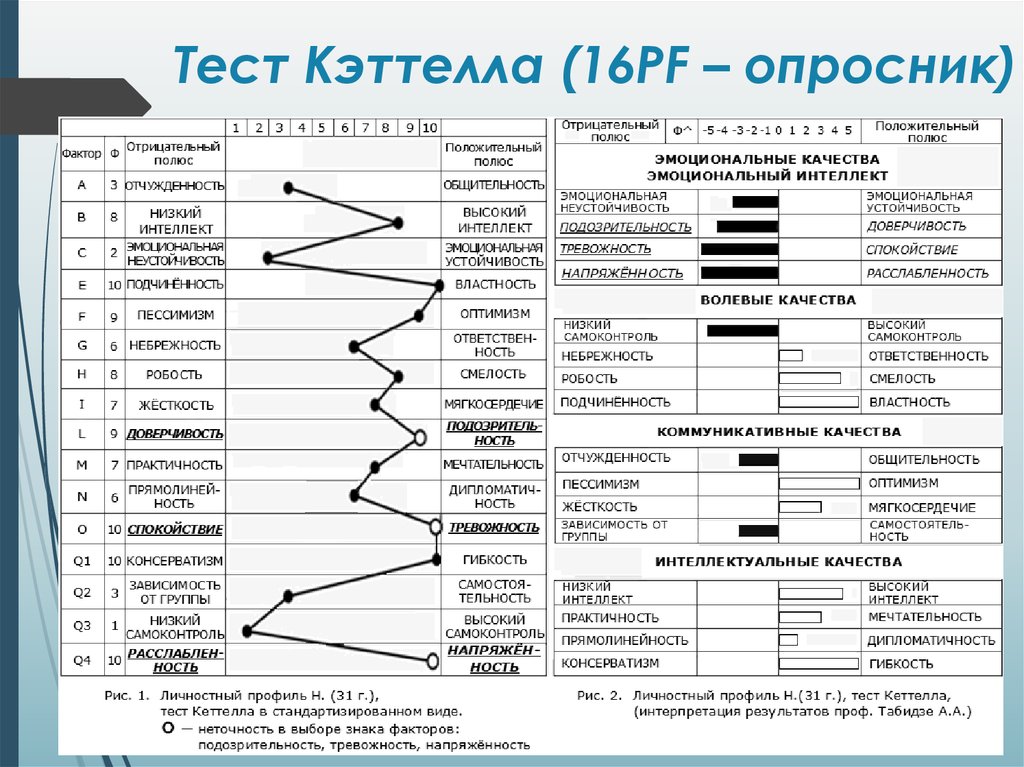 But no psychopathy score can definitively predict a person’s future outcomes, and no single test represents a “gold standard” for assessing psychopathy.
But no psychopathy score can definitively predict a person’s future outcomes, and no single test represents a “gold standard” for assessing psychopathy.
All validated measures of psychopathy have strengths and weaknesses and are more appropriate in some settings than others. The PCL-R test was created for use in forensic settings and requires a trained examiner to administer. As a result, it is not well suited for assessing yourself or someone you know.
Can the TriPM or ICU be used to diagnose psychopathy?
Scores on the TriPM and ICU are not clinical diagnoses. A person cannot be clinically diagnosed as a psychopath. For a mental disorder to be a clinical diagnosis, it must be listed in the International Statistical Classification of Diseases and Related Health Problems (ICD-10) or The Diagnostic and Statistical Manual-5 (DSM-5), which are the manuals that mental health professionals use to diagnose mental illnesses. Psychopathy is not listed in these manuals.
However, scores on these measures of psychopathy can be used to compare a person’s level of psychopathy with typical psychopathy scores for people of their age and gender. They can be used to estimate a person’s risk for engaging in violent, criminal, or antisocial behavior.
A person with psychopathy can still benefit from a professional assessment. People with psychopathy may also have any of several recognized clinical disorders.
Psychopathy test
- Tests
- types
- articles
- news
- Members
- Search
This test is also available in these languages:
The Hare Psychopathy Scorecard (PCL-R) is one of the most well-known questionnaires used to determine the level of psychopathy.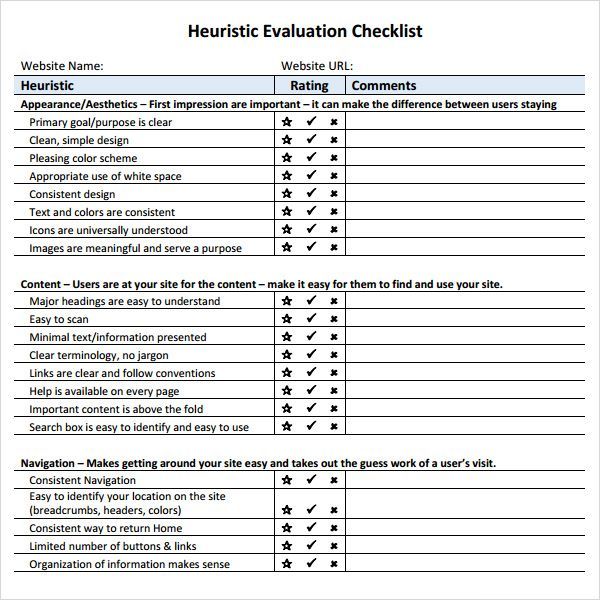 Usually, it is used to detect psychopathic or antisocial tendencies in a person. Psychopaths ruthlessly manipulate others using charisma, deceit, and cruelty to achieve their goals. This test relies on the Hare Psychopathy Scorecard, but also uses factor analyses.
Usually, it is used to detect psychopathic or antisocial tendencies in a person. Psychopaths ruthlessly manipulate others using charisma, deceit, and cruelty to achieve their goals. This test relies on the Hare Psychopathy Scorecard, but also uses factor analyses.
Do you or someone you know have psychopathy traits? For each following statement, indicate how much it concerns you or the person you have chosen. nine0018
Question 1 of 20
This person has experienced casual sex.
Doesn't apply. Partially concerned / don't know. nine0014 Concerns.
CONTINUE BACK
Advertisement
The IDR-PCT Test © is the property of IDR Labs International. The primary study is by FBI counsel and criminal psychologist Robert D. Hare. The IDR-PCT uses Hare's research, however this test is not directly related to this researcher and is not identical to Hare's Psychopathy Scorecard (PCL-R). This test is in no way affiliated with Robert Hare, his colleagues or their respective institutions. This test does not infringe any proprietary rights. nine0039
The Psychopathy Scorecard is widely used to detect signs of psychopathy. The questionnaire does not cover all possible types of psychopathy and is not intended for respondents who are trying to get around the system and go beyond human psychology.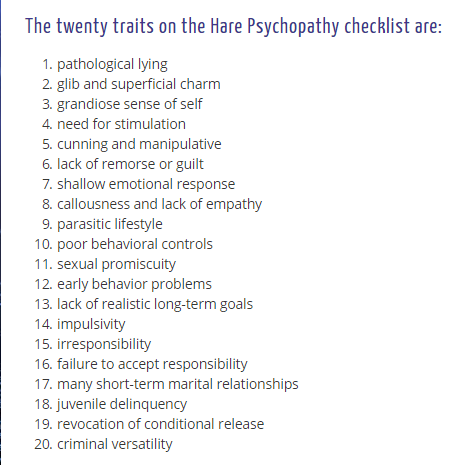 Contrary to popular belief, the psychopathy score sheet is not the only method for identifying signs of psychopathy. According to another theoretical source, which is used in such psychiatric manuals as the Diagnostic and Statistical Manual of Mental Disorders, the results of the psychopathy scorecard are largely consistent with narcissistic, emotionally unstable and antisocial personality types. To learn more about these personality types, please take our Personality Disorder Quiz. nine0018
Contrary to popular belief, the psychopathy score sheet is not the only method for identifying signs of psychopathy. According to another theoretical source, which is used in such psychiatric manuals as the Diagnostic and Statistical Manual of Mental Disorders, the results of the psychopathy scorecard are largely consistent with narcissistic, emotionally unstable and antisocial personality types. To learn more about these personality types, please take our Personality Disorder Quiz. nine0018
Although this test is designed to detect signs of psychopathy, it should not be confused with other similar tests developed by alternative organizations. However, all tests of this type are designed to determine the level of a person's psychopathy according to research in the Western world. The IDR-PCT © test is the property of IDR Labs International. The primary research belongs to criminal psychologist Robert D. Hare. The developers of this free test are graduates who have had experience with numerous personality tests and have also worked professionally with personality typology tests.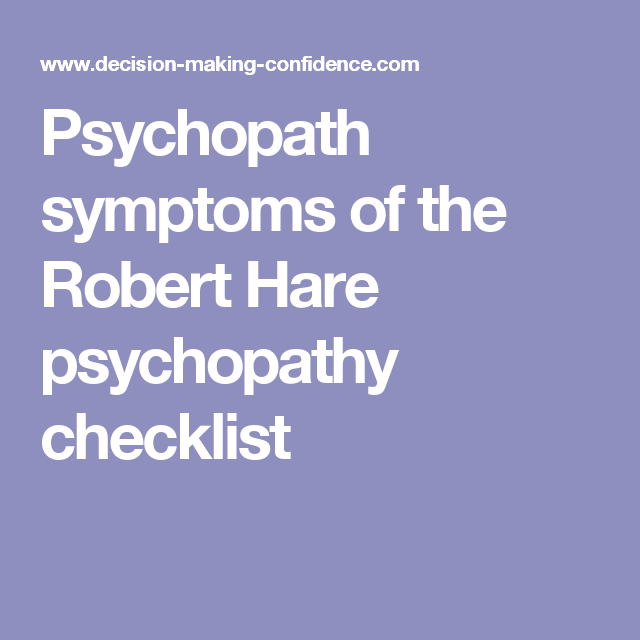 The results of our online psychopathy test are provided "as is" and should not be construed as providing professional or certified advice of any kind. For more information about our online test, please see our Terms of Service. nine0018
The results of our online psychopathy test are provided "as is" and should not be construed as providing professional or certified advice of any kind. For more information about our online test, please see our Terms of Service. nine0018
Psychopathy Test
This test is also available in the following languages:
Based on the work of Associate Professor of Psychology Michael R. Levenson, this Psychopathy Test is a scientifically validated test for determining the level of psychopathy. It is widely used to detect signs of psychopathy among people.
Do you have psychopathy traits? For each following statement, indicate how much you agree with it. nine0018
Question 1 of 27
People who fall for deceit are themselves to blame.
| Disagree | I agree |
CONTINUE BACK
Advertisement
The IDR-PST © is the property of IDR Labs International.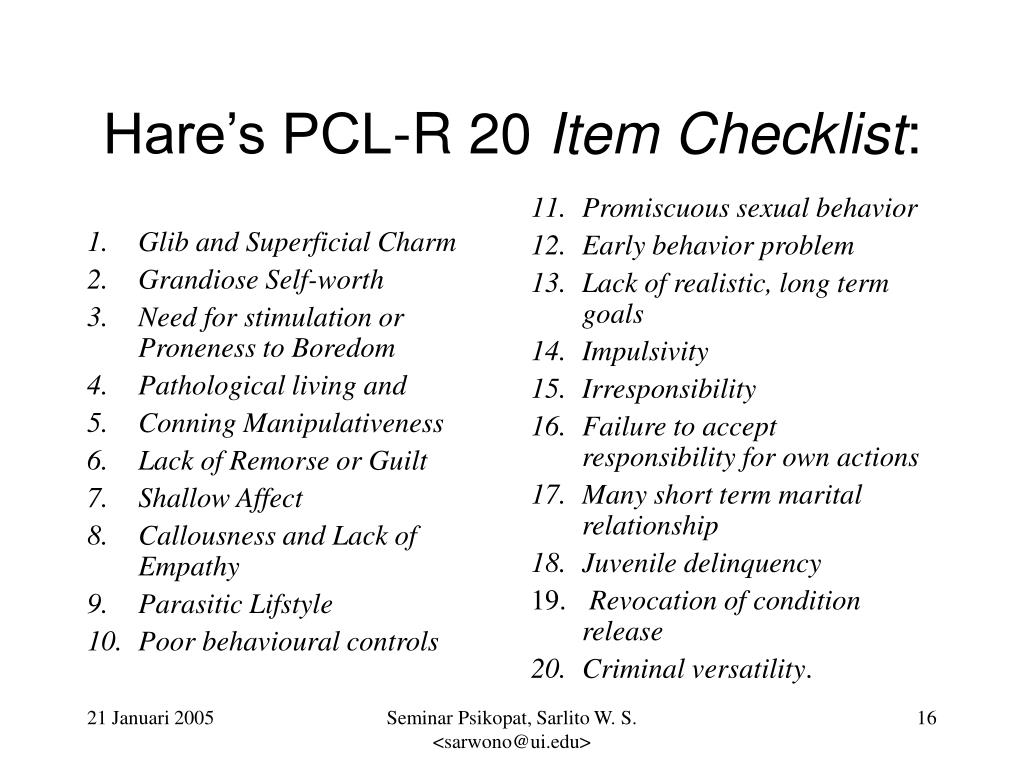 The primary research belongs to Michael R. Levenson, Associate Professor of Psychology. The IDR-PST test uses Levenson's research, but this test is not directly related to this researcher and is not identical to the Levenson Psychopathy Inventory. This test is in no way affiliated with Levenson, Hayer, their colleagues or their respective institutions. This test does not infringe any proprietary rights. nine0039
The primary research belongs to Michael R. Levenson, Associate Professor of Psychology. The IDR-PST test uses Levenson's research, but this test is not directly related to this researcher and is not identical to the Levenson Psychopathy Inventory. This test is in no way affiliated with Levenson, Hayer, their colleagues or their respective institutions. This test does not infringe any proprietary rights. nine0039
The Psychopathic Signs Test is widely used to identify susceptibility to psychopathy. The Psychopathic Signs Test does not cover all possible types of psychopathy and is not intended for respondents who are trying to bypass the system and go beyond human psychology. Contrary to popular belief, the psychopathy symptom test is not the only way to detect susceptibility to psychopathy. According to another theoretical source, which is used in such psychiatric manuals as the Diagnostic and Statistical Manual of Mental Disorders, the results of the test for signs of psychopathy are significantly consistent with narcissistic, emotionally unstable and antisocial personality types.